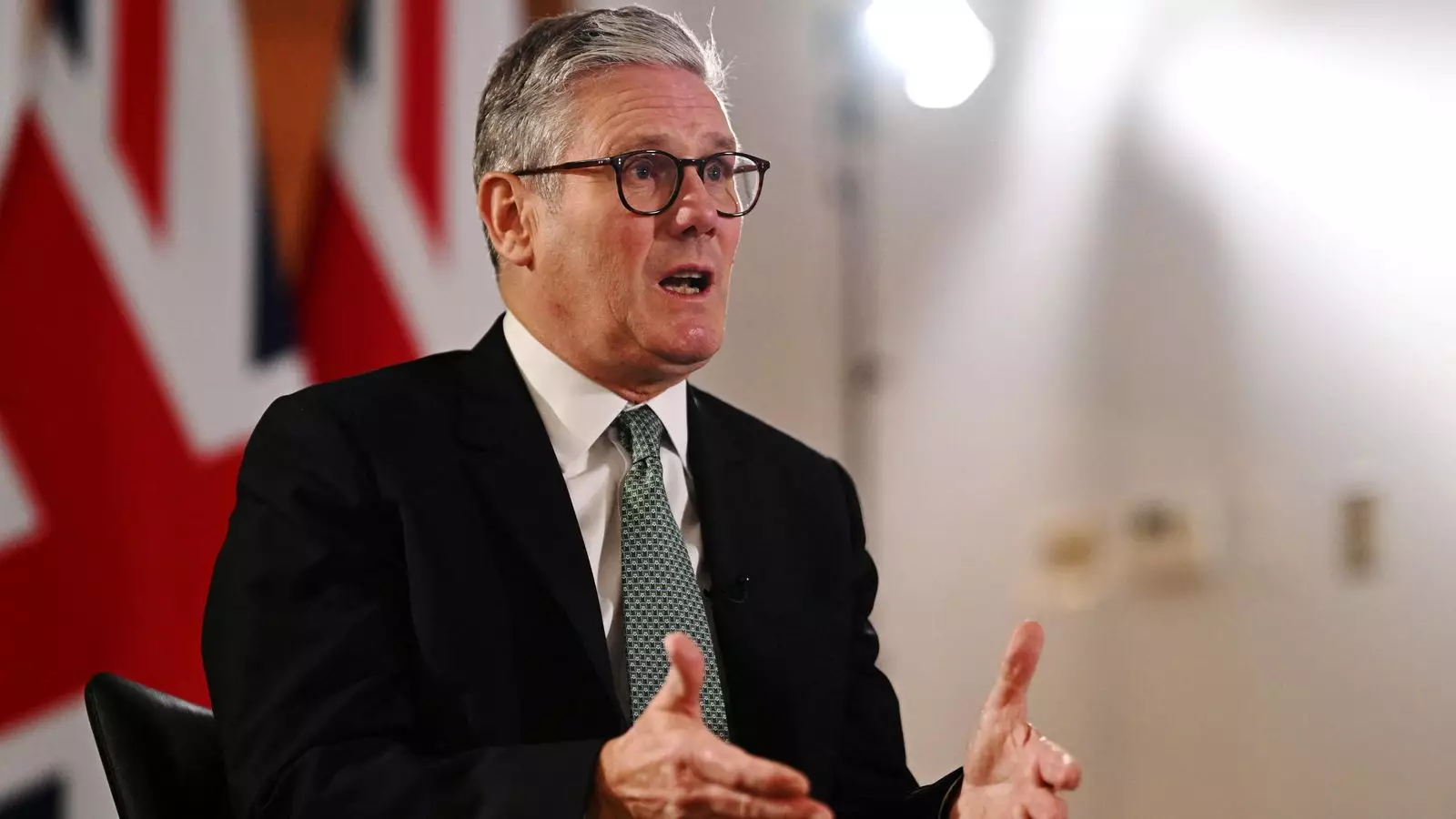In the intricate landscape of modern politics, the actions and decisions of public figures often come under intense scrutiny. A notable case recently emerged involving Labour leader Sir Keir Starmer, who accepted a substantial donation for accommodation during a tumultuous election period. This situation not only highlights the intersection of personal life and political obligations but also raises pertinent questions about the ethics of donations in politics. In a time where the trust in public officials is paramount, the motivations and implications behind such transactions deserve a critical examination.
Sir Keir Starmer’s acceptance of a £20,000 donation for a flat’s use, provided by Lord Waheed Alli, crystallizes the tension between familial responsibilities and political life. Starmer was faced with balancing his son’s educational needs during a particularly stressful exam period while simultaneously navigating the heightened media presence that followed the election call. His declaration of this arrangement, made between 29 May and 13 July, raises important ethical questions about the nature of such donations and the transparency required from public leaders. By prioritizing his son’s ability to study without disturbance, Starmer appears to affirm his commitment to family; however, this decision could be perceived as a compromise of integrity, potentially undermining public trust.
Starmer’s actions have not gone unnoticed and have incited a range of criticisms, particularly since they come at a time when his party has criticized the Conservative government for its own donation tactics. By accepting two and a half times more donations than any other MP, Starmer is now in a position of defensiveness, struggling to align his decisions with the ethical standards he has publicly advocated. The political landscape is indeed unforgiving; perceptions can shift rapidly, and Starmer’s situation exemplifies how quickly public opinion can be swayed by discrepancies between proclaimed values and personal actions.
The situation is complicated further by the identity and background of his primary donor, Lord Alli, a well-known figure in the fashion industry and a longstanding supporter of the Labour party. The relationship between politicians and their donors often conjures images of quid pro quo arrangements, in which influence and power could be exchanged for financial support. Considering that Alli has contributed significantly to Starmer’s finances—amounting to about £39,122 from a total of £107,000 in gifts and hospitality—it raises the question of whether such donations ultimately serve a greater good or merely facilitate access to power.
Starmer’s vow to stop accepting clothing donations and his approach to using hospitality facilities, such as his use of the Arsenal directors’ box, aims at reducing taxpayer expenses related to security. While his decisions may stem from pragmatic considerations, they inadvertently highlight another ethical dilemma: whether the appearance of propriety is enough in the eyes of the public, or if deeper accountability is required. The implications of accepting substantial gifts while aspiring to appeal to the integrity of the constituents show that the line between legitimacy and impropriety can often appear blurred.
The challenges faced by Sir Keir Starmer are emblematic of larger issues within political fundraising and the need for stricter regulations on donations. As the public becomes increasingly disillusioned with the political process, it is imperative that leaders ensure a transparent and accountable approach to funding their campaigns. The complexities surrounding Starmer’s situation underscore a crucial question: how can politicians navigate personal commitments without compromising their ethical obligations? Moving forward, a renewed emphasis on transparency, integrity, and the humanity behind the numbers could restore public trust in political leadership. It is a delicate dance of responsibility that must be carefully balanced by all in positions of power.


Leave a Reply